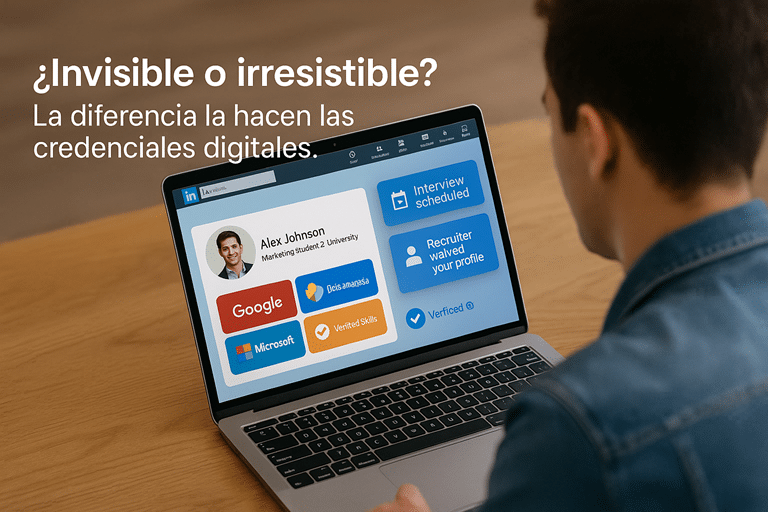Academic fraud is a growing concern that threatens the integrity of the education system globally. Since the falsification of University degrees until the manipulation of academic certificates, these fraudulent practices not only damage the reputation of educational institutions, but also undermine the confidence of the labor market. However, an emerging technology is presented as a powerful solution, as Blockchain can prevent academic fraud and thus protect the authenticity of university degrees.
In this article, we will explore how transcript fraud jeopardizes education, review a key study on occupational fraud, and analyze how Blockchain can be the key to combating these challenges.
Fraud in academic certificates: a threat to education
Obtaining a fake certificate on the web is surprisingly easy and inexpensive. In a matter of minutes and for just a few hundred dollars, a person can acquire a fake college degree, bypassing the years of study and high fees that come with obtaining a legitimate degree.
Instead of paying $66,000 or more for an MBA or at least $40,000 to become an engineer, many choose to pay a small fraction of that cost for a fraudulent certificate, hoping to land a well-paying job.
An FBI agent, when investigating this phenomenon, recounted his experience: “I told them the date I wanted to graduate, the specialty I wanted, and the GDP I wanted. “It was a bargain: $500 for an MBA.” This type of fraud not only devalues the efforts of those who earned their degrees legitimately, but also puts the quality of talent in the job market at risk.

Association of Certified Fraud Examiners Study
The Association of Certified Fraud Examiners published a revealing study in 2018 on the prevalence of occupational fraud. This report, one of the largest of its kind, reveals that employment fraud costs approximately $7 billion in actual damages, affecting 23 key industry sectors, from small local businesses to large multinational corporations.
What is alarming is that 22% of these frauds resulted in losses of at least one million dollars. Additionally, it is estimated that the average organization loses 5% of its annual revenue due to fraud. These data underline the magnitude of the problem and highlight the importance of adopting preventive measures, especially in the educational field.
Risks and Costs of Securities Fraud for Organizations and Individuals
Transcript fraud not only affects educational institutions, but also poses a significant risk to organizations that hire employees with fake degrees.
Employers may end up hiring unqualified individuals, leading to decreased productivity, an increase in errors, and potential legal liability. Additionally, people who use fake certificates risk being caught, which can result in loss of employment, damage to their reputation, and, in some cases, legal action.
How to Effectively Prevent Title Fraud
Blockchain technology has emerged as an innovative and effective solution to combat academic certificate fraud. Blockchain can prevent academic fraud through its ability to create immutable, decentralized records of data.
By registering each certificate in a blockchain, it is ensured that the information is authentic and cannot be altered, eliminating the possibility of forgery.

Verification of the authenticity of the educational certificate
Verifying the authenticity of academic certificates is crucial to maintaining trust in the education system. With Blockchain, each certificate issued by an educational institution is recorded with a unique identifier and cryptographic hash. This allows any employer or institution to easily verify the authenticity of the certificate, ensuring that it is legitimate and has not been altered.
The transparency and security that Blockchain offers make this process reliable and accessible to everyone.
How it really works: The mechanics behind Blockchain
The process of registering and verifying certificates with Blockchain is simple but very effective. When a university issues a certificate, it is digitized and stored on a blockchain.
Each entry on the Blockchain contains details such as the student’s name, date of issue and academic achievements, all protected by a cryptographic system that guarantees the immutability of the data. This means that any attempted tampering would be detected immediately, providing an additional layer of security against academic fraud.

How Verifiable Credentials Prevent Title Fraud
Verifiable credentials, based on Blockchain technology, allow organizations to instantly verify the authenticity of a certificate without needing to contact the issuing institution. This not only speeds up the hiring process, but also ensures that only legitimate certificates are accepted.

By preventing the entry of fake certificates into the labor market, verifiable credentials help maintain high standards of quality and trust.

In conclusion, academic fraud is a real threat to education, but Blockchain technology offers a solid solution to prevent it. By adopting Blockchain, educational institutions can protect their reputations and ensure trust in their accreditation processes.
Take action today! Create a free account on the Acreditta platform and discover how Blockchain can protect the integrity of your academic degrees. For more information, contact us at info@acreditta.com.
Subscribe to blog here and receive all our content







